2 Definitions and books
2.1 Definitions
Definitions, terms, acronyms

The beginning of wisdom is the definition of terms. Socrates
The profusion of terms and expressions used for the name and type of management in the numerous books, articles and blogs on the liberated company is a little confusing. To know that we are talking about the same thing (liberating the energies of staff and the wisdom of leaders) we cite some of these notions below.
Some terms synonymous with liberated company:
- company (organization):
- adapted
- agile
- alive
- altruistic
- autonomous
- cellular
- centered on freedom (freedom centered company)
- collaborative
- conscious business
- creative
- decentralized
- democratic
- efficient
- elastic
- empowered
- empowering
- evolutionary (evolutionary organization)
- extent
- freed-up
- happiness (happy organization, delivering happiness)
- holistic
- horizontal
- humanist
- learner (learning organization)
- liberating
- positive
- reinvented
- self-governed
- teal
- without hierarchy
- without manager (no manager company)
- creative network
- increased liability company
Some concepts used in the liberated company:
- systematic approach
- happiness advantage
- auto control
- self-direction
- self-organizing
- self-governance
- self-management
- self-organization
- self-regulation
- distributed authority
- user-friendliness
- shared behavior
- co-creation
- decentralization
- decompartmentalization
- de-hierarchization
- concertative democracy
- circular economy
- intrinsic equality
- human element
- governance:
- collaborative
- collegiate
- shared
- flat hierarchy
- holacracy
- collective intelligence
- intra-entrepreneurship
- leader:
- servant leader
- conscious leader
- liberating leader
- leadership:
- agile
- goodwill
- egalitarian
- distributed
- natural
- shared
- corporate liberation
- democratic workplace
- management:
- agile
- increased
- autonomous
- cellular
- collaborative
- cooperative
- uninhibited
- democratic
- innovation
- sustainable
- ethics
- global
- humanist
- released
- by integration and self-control
- by trust
- by calm
- by Talents
- participative
- flat
- radical
- meritocracy
- performance
- lateral power
- presumption of trust
- positive psychology
- distributed responsibility
- sociocracy
- shared value
Definitions of liberated company:
- a company whose majority of employees are completely free and responsible to take any action that they - not their bosses or procedures - decide is best for their company's vision. Isaac Getz
- a company where we have freed the productive from the constraints of the unproductive. Jean-François Zobrist
- a company in which employee empowerment is considered a performance lever. Emmanuel Nardon
- a company where there are no bosses but servant leaders and autonomous and responsible people
Some definitions used in this module:
Agility: ability of a system to respond quickly to change
Anomaly: variation compared to what is expected
AV: added value
Conformity: fulfillment of a specified requirement
Control: ensure compliance with the specified criteria
COQ: cost of obtaining quality
Corrective action: action to eliminate the causes of nonconformity or any other undesirable event and to prevent their recurrence
Criticality: level of a potential risk
Curative action: action to eliminate a detected nonconformity
Customer satisfaction: top priority objective of every quality management system related to the satisfaction of customer requirements
Customer: the one who receives a product
Defect: nonconformity related to a specified use
Direction: group or persons responsible for management at the highest level of the company
Dysfunction: deviation in the ability of a functional unit to perform a specified function
Effectiveness: capacity to perform planned activities with minimum effort
Efficiency: financial relationship between achieved results and resources used
Fail safe device: system allowing the prevention of errors by eliminating the human factor
Failure: variation of aptitude of a functional unit to satisfy a specified function
FMEA: Failure Mode and Effects Analysis
Gemba: from Japanese, = real place, in the field
Indicator: value of a parameter, associated with an objective, allowing the objective measure of its effectiveness
Interested party: person, group or organization affected by the impacts from a company
ISO: international organization for standardization
Kaizen: from Japanese, kai = change et zen = good (for the better, better), Kaizen = continual improvement
Management system: set of processes allowing objectives to be achieved
Manager: someone who gets results through other people
Nonconformity (NC): non-fulfillment of a specified requirement
Non-quality: gap between expected and perceived quality
Organization: a structure that satisfies a need
Poka-Yoké: from Japanese Poka – unintentional error, Yoké – avoid. See Fail safe device
Preventive action: action to eliminate the potential causes of nonconformity or any other undesirable event and to prevent their appearance
Problem: gap that must be reduced to obtain a result
Process: activities that transform input into output
Product (or service): any result of a process or activity
QCDSE: Quality, Cost, Deadline, Safety, Environment
Quality management system (QMS): everything necessary for the quality management of a company
Quality management: activities allowing the control of an organization with regard to quality
Requirement: implicit or explicit need or expectation
Risk: likelihood of occurrence of a threat or an opportunity
Safety: aptitude to avoid an undesired event
Scrap: treatment of an unrecoverable product
SMED: Single Minute Exchange of Die
SPC: Statistical Process Control
Stakeholder: person, group or company that can affect or be affected by an organization
Supplier: the one who provides a product
System: set of interacting processes
TQC: Total Quality Control
Waste: anything that adds cost but not value
WWWWHHW: Who, What, Where, When, How, How much, Why
No performance without common language. Jean-François Zobrist
In the terminology of quality management systems, do not confuse:
- accident and incident
- an accident is an unexpected serious event
- an incident is an event that can lead to an accident
- anomaly, defect, dysfunction, failure, nonconformity, reject and waste:
- an anomaly is a deviation from what is expected
- a defect is the non-fulfillment of a requirement related to an intended use
- a dysfunction is a degraded function that can lead to a failure
- a failure is when a function has become unfit
- a nonconformity is the non-fulfillment of a requirement in production
- a reject is a nonconforming product that will be destroyed
- a waste is when there are added costs but no value
- audit program and plan
- an audit program is the annual planning of the audits
- an audit plan is the description of the audit activities
- audit, inspection, auditee and auditor
- an audit is the process of obtaining audit evidence
- an inspection is the conformity verification of a process or product
- an auditee is the one who is audited
- an auditor is the one who conducts the audit
- control and optimize
- to control is to meet the objectives
- to optimize is to search for the best possible results
- customer, external provider and subcontractor
- a customer receives a product
- an external provider provides a product on which specific work is done
- a subcontractor provides a service or product on which specific work is done
- effectiveness and efficiency
- effectiveness is the level of achievement of planned results
- efficiency is the ratio between results and resources
- follow-up and review
- follow-up is the verification of the obtained results of an action
- review is the analysis of the effectiveness in achieving objectives
- inform and communicate
- to inform is to give someone meaningful data
- to communicate is to pass on a message, to listen to the reaction and discuss
- objective and indicator
- an objective is a sought after commitment
- an indicator is the information on the difference between the pre-set objective and the achieved result
- organization and enterprise, society, company
- organization is the term used by the ISO 9001 standard as the entity between the supplier and the customer
- an enterprise, society and company are examples of organizations
- process, procedure, product, activity and task
- a process is how we satisfy the customer using people to achieve the objectives
- a procedure is the description of how we should conform to the rules
- a product is the result of a process
- an activity is a set of tasks
- a task is a sequence of simple operations
Remark: each time you use the expression "opportunity for improvement" instead of nonconformity, malfunction or failure, you will gain a little more trust from your interlocutor (external or internal customer).
For other definitions, comments, explanations and interpretations that you don’t find in this module and in annex 06, you can consult:
.jpg)
- ISO Online Browsing platform (OBP)
- IEC Electropedia
.jpg) Minute of relaxation. Cf. game: Effectiveness
Minute of relaxation. Cf. game: Effectiveness
2.2 Books
Books related to happiness in the liberated company

Reading is not necessary for the body, only oxygen is, but a good book oxygenates the mind. Dany Laferrière
.jpg) Books for further reading on quality:
Books for further reading on quality:
 Lao Tseu, Tao tö King, Marabout, 2017
Lao Tseu, Tao tö King, Marabout, 2017 Abraham Maslow, A Theory of Human Motivation, Psychological Review, 1943
Abraham Maslow, A Theory of Human Motivation, Psychological Review, 1943 Douglas McGregor, The Human Side of Enterprise, McGraw Hill, 1960
Douglas McGregor, The Human Side of Enterprise, McGraw Hill, 1960 Douglas McGregor, The professional manager, McGraw-Hill, 1967
Douglas McGregor, The professional manager, McGraw-Hill, 1967 Robert Townsend, Up the Organisation, How to Stop the Corporation from Stifling People and Strangling Profits, Knopf, 1970
Robert Townsend, Up the Organisation, How to Stop the Corporation from Stifling People and Strangling Profits, Knopf, 1970 James Burns, Leadership, Harper, 1979
James Burns, Leadership, Harper, 1979 Kenneth Blanchard & Spencer Johnson, The One Minute Manager, The Quickest Way to Increase Your Own Prosperity, Berkley Books, 1981
Kenneth Blanchard & Spencer Johnson, The One Minute Manager, The Quickest Way to Increase Your Own Prosperity, Berkley Books, 1981_1.jpg) Eliyahu Goldratt, Jeff Cox, The Goal, A Process of Ongoing Improvement, North River Press, 1984
Eliyahu Goldratt, Jeff Cox, The Goal, A Process of Ongoing Improvement, North River Press, 1984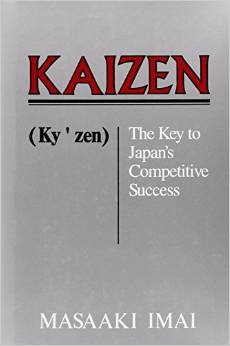 Masaaki Imai, Kaizen, The Key to Japan’s Competitive Success, McGraw Hill, 1986
Masaaki Imai, Kaizen, The Key to Japan’s Competitive Success, McGraw Hill, 1986 Akio Morita, Made in Japan, Akio Morita and Sony, E. P. Dutton, 1986
Akio Morita, Made in Japan, Akio Morita and Sony, E. P. Dutton, 1986-
 Max De Pree, Leadership is an Art, Currency Doubleday, 1987
Max De Pree, Leadership is an Art, Currency Doubleday, 1987  Taiichi Ohno, Toyota Production System, Beyond Large-Scale Production, Productivity press, 1988
Taiichi Ohno, Toyota Production System, Beyond Large-Scale Production, Productivity press, 1988_1.jpg) James Womack, Daniel Jones, Daniel Ross, The machine that changed the world, Free Press, 1990
James Womack, Daniel Jones, Daniel Ross, The machine that changed the world, Free Press, 1990 Peter Senge, The Fifth Discipline, The Art & Practice of The Learning Organization, Random House, 1990
Peter Senge, The Fifth Discipline, The Art & Practice of The Learning Organization, Random House, 1990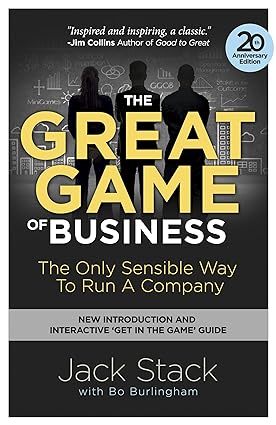 Jack Stack, The Great Game of Business, The only sensible way to run a company, Currency, 1992
Jack Stack, The Great Game of Business, The only sensible way to run a company, Currency, 1992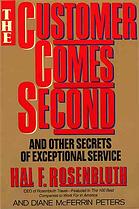 Hal Rosenbluth and Diane McFerrin-Peters, The Customer Comes Second, Quill, 1992
Hal Rosenbluth and Diane McFerrin-Peters, The Customer Comes Second, Quill, 1992_1.jpg) Ricardo Semler, Maverick, Arrow books, 1993
Ricardo Semler, Maverick, Arrow books, 1993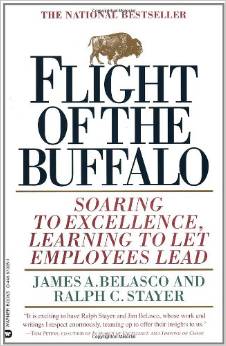 James Belasco and Ralph Stayer, Flight of the Buffalo, Soaring to excellence, Learning to Let Employees Lead, Warner Books, 1993
James Belasco and Ralph Stayer, Flight of the Buffalo, Soaring to excellence, Learning to Let Employees Lead, Warner Books, 1993 Robert Waterman, What America Does Right, Learning from Companies That Put People First, Norton, 1994
Robert Waterman, What America Does Right, Learning from Companies That Put People First, Norton, 1994 Spencer Johnson, Who Moved My Cheese? An Amazing Way to Deal with Change in your Work and your Life, Putnam, 1998
Spencer Johnson, Who Moved My Cheese? An Amazing Way to Deal with Change in your Work and your Life, Putnam, 1998 Frank Ostroff, The Horizontal Organization, What the Organization of the Future Actually Looks Like and How it Delivers Value to Customers, Oxford University Press, 1999
Frank Ostroff, The Horizontal Organization, What the Organization of the Future Actually Looks Like and How it Delivers Value to Customers, Oxford University Press, 1999 Rich Teerlink, Lee Ozley, More than a motorcycle, The Leadership Journey at Harley-Davidson, Harvard Business School Press, 2000
Rich Teerlink, Lee Ozley, More than a motorcycle, The Leadership Journey at Harley-Davidson, Harvard Business School Press, 2000  Stephen Lundin et al, Fish!: A Remarkable Way to Boost Morale and Improve Results, Hodder Mobius, 2000
Stephen Lundin et al, Fish!: A Remarkable Way to Boost Morale and Improve Results, Hodder Mobius, 2000 Stan Richards & David Culp, The Peaceable Kingdom, Building a Company without Factionalism, Fiefdoms, Fear and Other Staples of Modern Business, John Wiley & Sons, 2001
Stan Richards & David Culp, The Peaceable Kingdom, Building a Company without Factionalism, Fiefdoms, Fear and Other Staples of Modern Business, John Wiley & Sons, 2001 Peter Drucker, The Essential Drucker, The best of Sixty Years of Peter Drucker’s Essential Writings on Management, Harper, 2001
Peter Drucker, The Essential Drucker, The best of Sixty Years of Peter Drucker’s Essential Writings on Management, Harper, 2001 Michael Abrashoff, It's Your Ship: Management Techniques from the Best Damn Ship in the Navy, Grand Central Publishing, 2002
Michael Abrashoff, It's Your Ship: Management Techniques from the Best Damn Ship in the Navy, Grand Central Publishing, 2002 Robert Greenleaf, Servant Leadership: A Journey into the Nature of Legitimate Power and Greatness, Paulist Press, 2002
Robert Greenleaf, Servant Leadership: A Journey into the Nature of Legitimate Power and Greatness, Paulist Press, 2002_1.jpg) Ricardo Semler, The Seven-day Weekend, Arrow books, 2003
Ricardo Semler, The Seven-day Weekend, Arrow books, 2003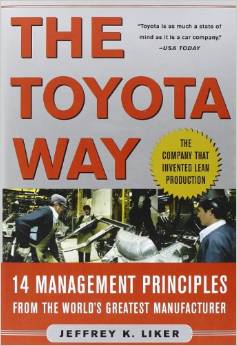 Jeffrey Liker, The Toyota Way, 14 Management Principles from the World's Greatest Manufacturer, McGraw Hill, 2004
Jeffrey Liker, The Toyota Way, 14 Management Principles from the World's Greatest Manufacturer, McGraw Hill, 2004 Richard Layard, Happiness, Lessons From a New Science, Penguin Books, 2005
Richard Layard, Happiness, Lessons From a New Science, Penguin Books, 2005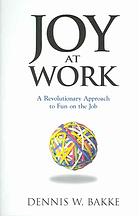 Dennis Bakke, Joy at Work, A Revolutionary Approach to Fun on the Job, PVG, 2005
Dennis Bakke, Joy at Work, A Revolutionary Approach to Fun on the Job, PVG, 2005 Richard Templar, The Rules of Management, A Definitive Code for Managerial Success, Pearson Education, 2005
Richard Templar, The Rules of Management, A Definitive Code for Managerial Success, Pearson Education, 2005-
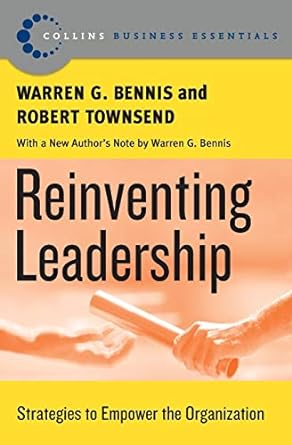 Warren Bennis, Robert Townsend, Reinventing Leadership: Strategies to Empower the Organization, Harper, 2005
Warren Bennis, Robert Townsend, Reinventing Leadership: Strategies to Empower the Organization, Harper, 2005 .jpg) Ori Brafman, Rod Beckstrom, The Starfish and the Spider, The Unstoppable Power of Leaderless Organizations, Portfolio, 2006
Ori Brafman, Rod Beckstrom, The Starfish and the Spider, The Unstoppable Power of Leaderless Organizations, Portfolio, 2006 John Wooden, Steve Jamison, The Essential Wooden: A Lifetime of Lessons on Leaders and Leadership, McGraw-Hill, 2007
John Wooden, Steve Jamison, The Essential Wooden: A Lifetime of Lessons on Leaders and Leadership, McGraw-Hill, 2007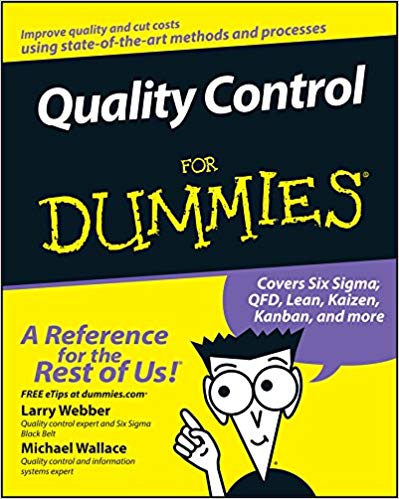 Larry Webber, Michael Wallace, Quality Control for Dummies, Wiley, 2007
Larry Webber, Michael Wallace, Quality Control for Dummies, Wiley, 2007 Chip Conley, Peak, How Great Companies Get Their Mojo from Maslow, Jossey-Bass, 2007
Chip Conley, Peak, How Great Companies Get Their Mojo from Maslow, Jossey-Bass, 2007 Henry Stewart et al, Relax! A happy business story, Get more from your business by doing less, Happy, 2009
Henry Stewart et al, Relax! A happy business story, Get more from your business by doing less, Happy, 2009_1.jpg) Brian Carney, Isaac Getz, Freedom, Inc., Free Your Employees and Let Them Lead Your Business to Higher Productivity, Profits, and Growth, Random House, 2009
Brian Carney, Isaac Getz, Freedom, Inc., Free Your Employees and Let Them Lead Your Business to Higher Productivity, Profits, and Growth, Random House, 2009 Daniel Pink, Drive, The Surprising Truth About What Motivates Us, Riverhead Books , 2009
Daniel Pink, Drive, The Surprising Truth About What Motivates Us, Riverhead Books , 2009 Steven Spear, Chasing the Rabbit, How Market Leaders Outdistance the Competition and How Great Companies Can Catch Up and Win, McGraw Hill, 2009
Steven Spear, Chasing the Rabbit, How Market Leaders Outdistance the Competition and How Great Companies Can Catch Up and Win, McGraw Hill, 2009_1.jpg) Vineet Nayar, Employees First, Customers Second, Turning conventional management upside down, Harvard Business Press, 2010
Vineet Nayar, Employees First, Customers Second, Turning conventional management upside down, Harvard Business Press, 2010.jpg) Tony Hsieh, Delivering Happiness, A Path to Profits, Passion, and Purpose, Grand Central, Publishing, 2010
Tony Hsieh, Delivering Happiness, A Path to Profits, Passion, and Purpose, Grand Central, Publishing, 2010 Ken Blanchard, Colleen Barrett, Lead with LUV, A Different Way to Create Real Success, Pearson Education, 2010
Ken Blanchard, Colleen Barrett, Lead with LUV, A Different Way to Create Real Success, Pearson Education, 2010.jpg) Shawn Achor, The Happiness Advantage, The Seven Principles of Positive Psychology That Fuel Success and Performance at Work, Crown Business, 2010
Shawn Achor, The Happiness Advantage, The Seven Principles of Positive Psychology That Fuel Success and Performance at Work, Crown Business, 2010 Blake Mycoskie, Start Something That Matters, Spiegel & Grau, 2011
Blake Mycoskie, Start Something That Matters, Spiegel & Grau, 2011_2.jpg) Henry Stewart, The Happy Manifesto, Make Your Organisation a Great Place to Work – Now, Happy, 2012
Henry Stewart, The Happy Manifesto, Make Your Organisation a Great Place to Work – Now, Happy, 2012 Jurgen Appelo, How to change the World, Change Management 3.0, Kindle, 2012
Jurgen Appelo, How to change the World, Change Management 3.0, Kindle, 2012-
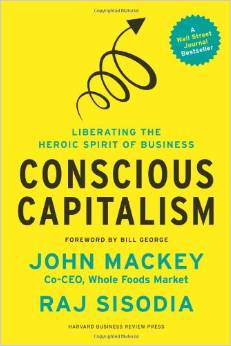 John Mackey, Raj Sisodia, Conscious Capitalism, Liberating The Heroic Spirit Of Business, Harvard Business Review Press, 2013
John Mackey, Raj Sisodia, Conscious Capitalism, Liberating The Heroic Spirit Of Business, Harvard Business Review Press, 2013 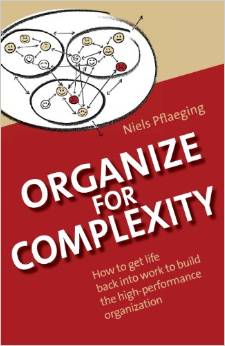 Niels Pflaeging, Organize for Complexity, How to get life back into work to build the high-performance organization, BetaCodex Publishing, 2014
Niels Pflaeging, Organize for Complexity, How to get life back into work to build the high-performance organization, BetaCodex Publishing, 2014_1.jpg) Jurgen Appelo, Management 3.0 Workout, Games, Tools & Practices to Engage People, Improve Work, and Delight Clients, Happy Melly Express, 2014
Jurgen Appelo, Management 3.0 Workout, Games, Tools & Practices to Engage People, Improve Work, and Delight Clients, Happy Melly Express, 2014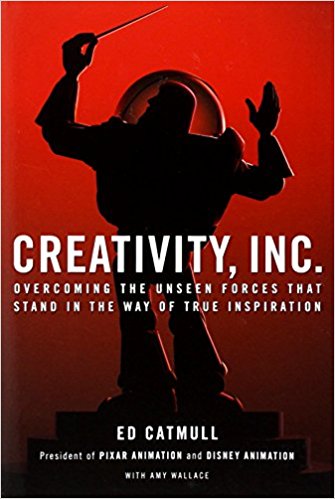 Ed Catmull, Creativity, Inc., Random House, 2014
Ed Catmull, Creativity, Inc., Random House, 2014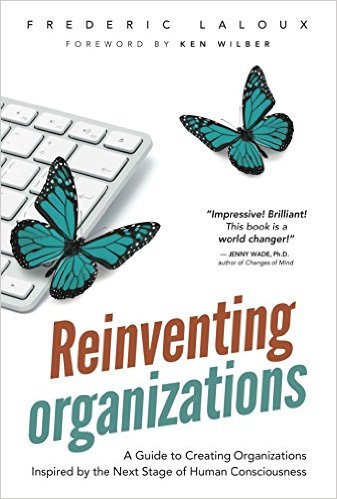 Frederic Laloux, Reinventing Organizations, A guide to Creating Organizations Inspired by the Next Stage of Human Consciousness, Nelson Parker, 2014
Frederic Laloux, Reinventing Organizations, A guide to Creating Organizations Inspired by the Next Stage of Human Consciousness, Nelson Parker, 2014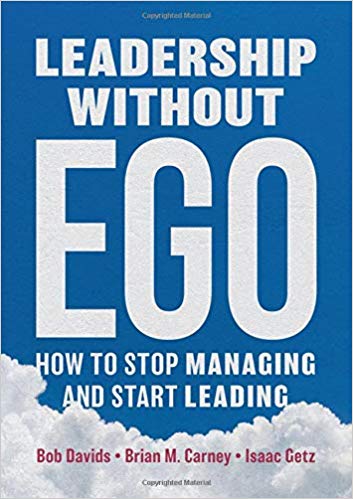 Bob Davids, Isaac Getz, Brian Carney, Leadership without ego, Palgrave Macmillan, 2018
Bob Davids, Isaac Getz, Brian Carney, Leadership without ego, Palgrave Macmillan, 2018.jpg) Reed Hastings, Erin Meyer, No Rules Rules: Netflix and the Culture of Reinvention, Virgin Books, 2020
Reed Hastings, Erin Meyer, No Rules Rules: Netflix and the Culture of Reinvention, Virgin Books, 2020
When I think of all the books still left for me to read, I am certain of further happiness. Jules Renard
.jpg) Minute of relaxation. Paganini's violin concert performed with facial expressions.
Minute of relaxation. Paganini's violin concert performed with facial expressions.
